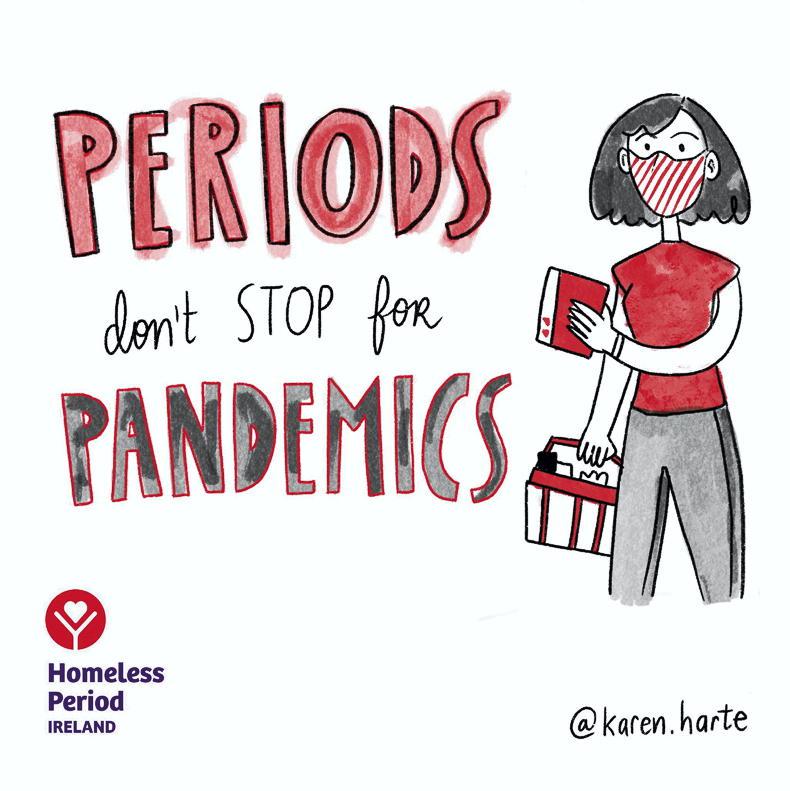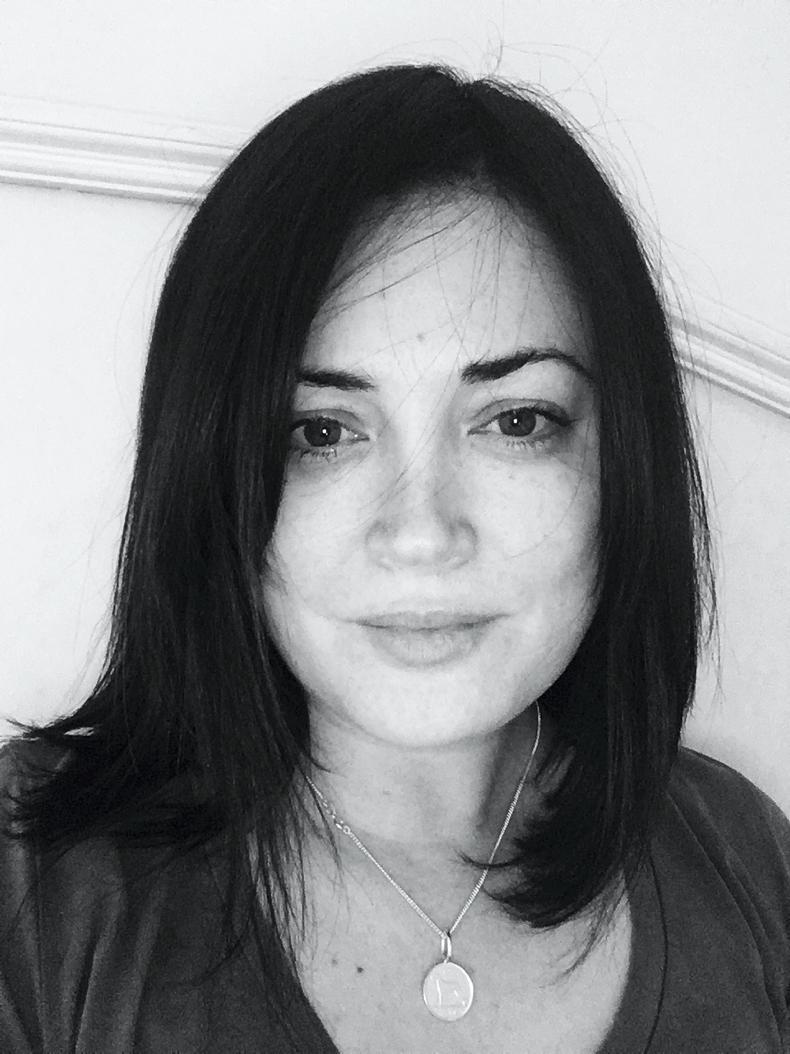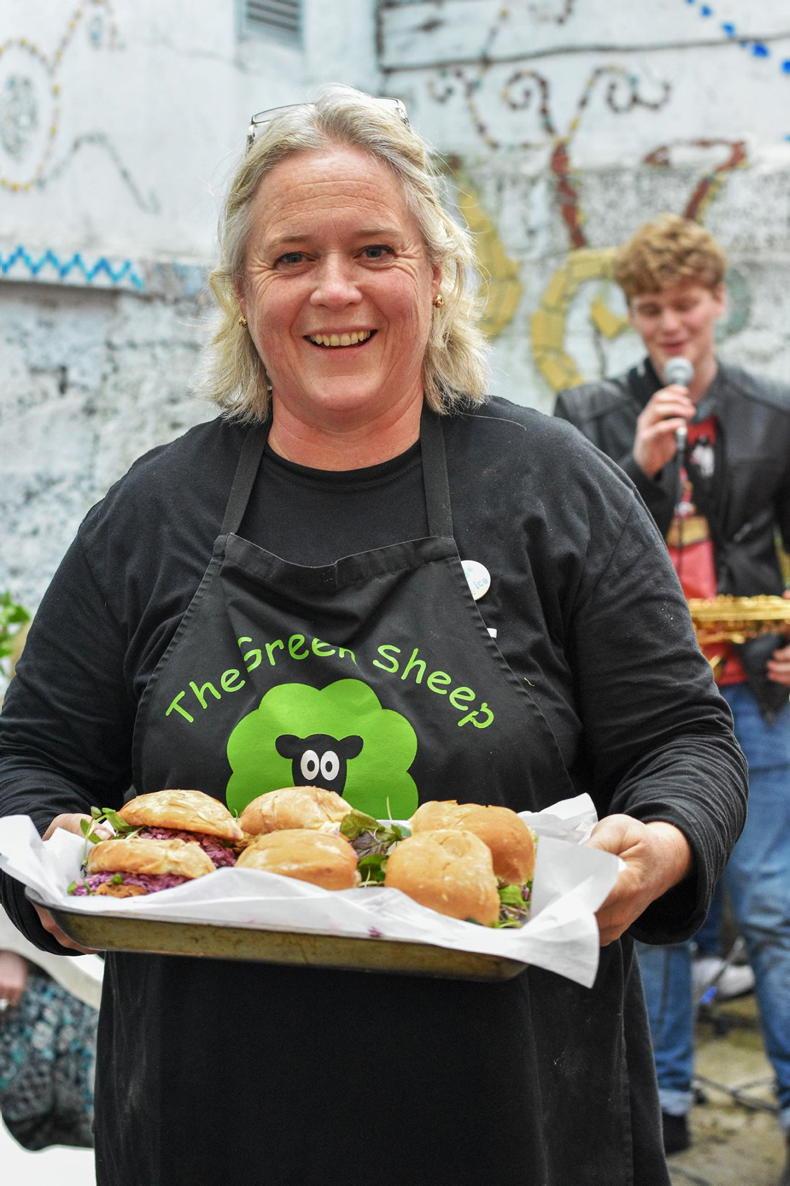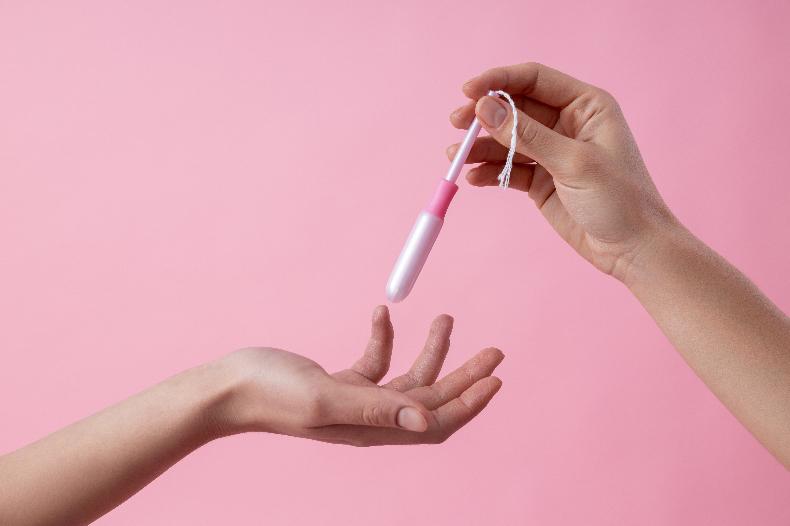Making the choice between buying food or tampons: for some, this is a serious financial dilemma – and one which is repeated each month. A report launched by the Department of Health and the Department of Children, Equality, Disability, Integration and Youth has estimated up to 85,000 people in Ireland who menstruate are at risk of what is known as “period poverty” – the inability to access appropriate hygiene products.

The same Government report, which was released in February, estimates the cost of these items at around €121 per year. In countries where more data on period poverty has been collected, those affected have said they have gone without food in order to buy necessary products, have had limited or no access to period products and have suffered health conditions as a result of poor period hygiene.
A hot topic
Period poverty has become a more open conversation in recent times – and rightly so. People who menstruate make up around 50% of the world’s population, so having access to quality period products (including pain relief) should be a priority. However, this type of poverty is a symptom of a larger societal problem. It has been noted that attempts to tackle period poverty at a Government level should be part of the programme to help those currently living below the poverty line.
In correspondence with Irish Country Living, Minister for Children, Equality, Disability, Integration and Youth Roderic O’Gorman says further data on the prevalence of period poverty in Ireland will need to be collected before any firm government action can be planned.
“One of the clear findings in the report of the sub-committee is the need to strengthen the evidence base on the prevalence of period poverty amongst women and girls across the full menstrual age (10-54),” he says.
“This is required to provide a more comprehensive evidence base for further action.
“The Department of Health will lead on the policy development to end period poverty in Ireland,” he continues. “My department, through the National Strategy for Women and Girls, will assist the Department of Health with this important work.”
Other countries leading the way
In recent months, Scotland passed the Period Products Bill which guarantees free access to period products to whoever might need them. New Zealand is now supplying all schools with free period products for students, as is France.
Worldwide, a lack of access to necessary hygiene products limits those who menstruate from reaching their full potential. This happens by missing school or important events, or simply through experiencing shame and stigma – which can have long-term effects on self-esteem and mental health.
It’s not just an urban issue – it exists throughout Ireland
In Ireland, period poverty disproportionally affects stigmatised groups; including those living in direct provision and those who are homeless. But it’s not just an urban issue – it exists throughout Ireland, with accessibility being a serious problem for those living in rural areas.
The Homeless Period Ireland
Claire Hunt runs The Homeless Period Ireland; a non-governmental organisation which aims to support those in Ireland with access issues to menstrual health products.

Claire Hunt.
“I’ve been running The Homeless Period Ireland for about five years now; it’s a volunteer run initiative,” she explains.
Affiliated with Homeless Period USA, the group collects donations of period products and distributes them to those in need. In normal times, they rely on volunteers throughout the country, who collect and distribute products within their locality. At the moment, they are not accepting donations – but that doesn’t mean their work has halted.
Lockdown solutions
“At the moment, it’s next to impossible to collect products,” Claire says. “When the initial lockdown kicked off, it was just after International Women’s Day, so we had luckily received large donations [to tide us over through the lockdown].
“People contact me on a needs-be basis, so now we have ways and means to get products to people in need.
Period poverty is perhaps wrongly labelled, and it’s having a trending moment
Claire is based in Dublin, but insists period poverty in Ireland is not exclusive to urban areas.
“There’s no difference between urban and rural,” she says. “Period poverty is perhaps wrongly labelled, and it’s having a trending moment. Because of the label, people forget: this is part of poverty and poverty is everywhere.
“I recently heard from someone in direct provision who was looking for baby nappies. That alone is a reminder: period poverty is just a facet of financial poverty. By focusing on one type, you’re not focusing on a solution. That said, period poverty hugely impacts peoples’ dignity and something absolutely has to be done about it.”
End period plastic
While Claire and other volunteers with The Homeless Period Ireland await Government intervention to help end period poverty, she says she will be disappointed if the products provided aren’t eco-friendly.
“I live near the coast – seeing plastic applicators floating around the ocean? It’s not good enough. Along with ending period poverty, we can also end period plastic.”
Local drop-off points
Lucy Lambe is a business owner in Thurles, Co Tipperary. Like others around the country, she uses her business (The Green Sheep Café) as a designated drop-off point for The Homeless Period Ireland donations. She says she first heard about the group via social media.

Lucy Lambe.
“I saw the work they were doing and I just wanted to be part of it,” she says. “Period poverty exists in my locality; I have seen how these donations positively affect peoples’ lives. One woman was coming in each month; making large donations and I eventually realised she was once homeless herself. This was a cause really close to her heart.”
While drop-offs are currently halted and The Green Sheep has been closed throughout the most recent lockdown, in the coming months, these services will hopefully be going back to normal.
While monetary donations are not taken; new, unopened donations of period and other hygiene products (like nappies) are happily accepted. To find out more, you can find The Homeless Period Ireland on Facebook.
Making the choice between buying food or tampons: for some, this is a serious financial dilemma – and one which is repeated each month. A report launched by the Department of Health and the Department of Children, Equality, Disability, Integration and Youth has estimated up to 85,000 people in Ireland who menstruate are at risk of what is known as “period poverty” – the inability to access appropriate hygiene products.

The same Government report, which was released in February, estimates the cost of these items at around €121 per year. In countries where more data on period poverty has been collected, those affected have said they have gone without food in order to buy necessary products, have had limited or no access to period products and have suffered health conditions as a result of poor period hygiene.
A hot topic
Period poverty has become a more open conversation in recent times – and rightly so. People who menstruate make up around 50% of the world’s population, so having access to quality period products (including pain relief) should be a priority. However, this type of poverty is a symptom of a larger societal problem. It has been noted that attempts to tackle period poverty at a Government level should be part of the programme to help those currently living below the poverty line.
In correspondence with Irish Country Living, Minister for Children, Equality, Disability, Integration and Youth Roderic O’Gorman says further data on the prevalence of period poverty in Ireland will need to be collected before any firm government action can be planned.
“One of the clear findings in the report of the sub-committee is the need to strengthen the evidence base on the prevalence of period poverty amongst women and girls across the full menstrual age (10-54),” he says.
“This is required to provide a more comprehensive evidence base for further action.
“The Department of Health will lead on the policy development to end period poverty in Ireland,” he continues. “My department, through the National Strategy for Women and Girls, will assist the Department of Health with this important work.”
Other countries leading the way
In recent months, Scotland passed the Period Products Bill which guarantees free access to period products to whoever might need them. New Zealand is now supplying all schools with free period products for students, as is France.
Worldwide, a lack of access to necessary hygiene products limits those who menstruate from reaching their full potential. This happens by missing school or important events, or simply through experiencing shame and stigma – which can have long-term effects on self-esteem and mental health.
It’s not just an urban issue – it exists throughout Ireland
In Ireland, period poverty disproportionally affects stigmatised groups; including those living in direct provision and those who are homeless. But it’s not just an urban issue – it exists throughout Ireland, with accessibility being a serious problem for those living in rural areas.
The Homeless Period Ireland
Claire Hunt runs The Homeless Period Ireland; a non-governmental organisation which aims to support those in Ireland with access issues to menstrual health products.

Claire Hunt.
“I’ve been running The Homeless Period Ireland for about five years now; it’s a volunteer run initiative,” she explains.
Affiliated with Homeless Period USA, the group collects donations of period products and distributes them to those in need. In normal times, they rely on volunteers throughout the country, who collect and distribute products within their locality. At the moment, they are not accepting donations – but that doesn’t mean their work has halted.
Lockdown solutions
“At the moment, it’s next to impossible to collect products,” Claire says. “When the initial lockdown kicked off, it was just after International Women’s Day, so we had luckily received large donations [to tide us over through the lockdown].
“People contact me on a needs-be basis, so now we have ways and means to get products to people in need.
Period poverty is perhaps wrongly labelled, and it’s having a trending moment
Claire is based in Dublin, but insists period poverty in Ireland is not exclusive to urban areas.
“There’s no difference between urban and rural,” she says. “Period poverty is perhaps wrongly labelled, and it’s having a trending moment. Because of the label, people forget: this is part of poverty and poverty is everywhere.
“I recently heard from someone in direct provision who was looking for baby nappies. That alone is a reminder: period poverty is just a facet of financial poverty. By focusing on one type, you’re not focusing on a solution. That said, period poverty hugely impacts peoples’ dignity and something absolutely has to be done about it.”
End period plastic
While Claire and other volunteers with The Homeless Period Ireland await Government intervention to help end period poverty, she says she will be disappointed if the products provided aren’t eco-friendly.
“I live near the coast – seeing plastic applicators floating around the ocean? It’s not good enough. Along with ending period poverty, we can also end period plastic.”
Local drop-off points
Lucy Lambe is a business owner in Thurles, Co Tipperary. Like others around the country, she uses her business (The Green Sheep Café) as a designated drop-off point for The Homeless Period Ireland donations. She says she first heard about the group via social media.

Lucy Lambe.
“I saw the work they were doing and I just wanted to be part of it,” she says. “Period poverty exists in my locality; I have seen how these donations positively affect peoples’ lives. One woman was coming in each month; making large donations and I eventually realised she was once homeless herself. This was a cause really close to her heart.”
While drop-offs are currently halted and The Green Sheep has been closed throughout the most recent lockdown, in the coming months, these services will hopefully be going back to normal.
While monetary donations are not taken; new, unopened donations of period and other hygiene products (like nappies) are happily accepted. To find out more, you can find The Homeless Period Ireland on Facebook.








SHARING OPTIONS